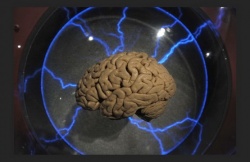Difference between revisions of "Vijnana"
m (Text replacement - "Category:Sanskrit terminology" to "{{SanskritTerminology}}") |
|||
| (One intermediate revision by the same user not shown) | |||
| Line 19: | Line 19: | ||
[[Category:Buddhist Terms]] | [[Category:Buddhist Terms]] | ||
[[Category:Consciousness]] | [[Category:Consciousness]] | ||
| − | + | {{SanskritTerminology}} | |
Latest revision as of 12:31, 27 April 2014
Vijnana: Skt., lit. “Consciousness, knowing.”
The highest state of Spiritual realization, whereby the Enlightened soul perceives Brahman not in a special state of - Samadhi but in the midst of the manifest World, which is now nothing other than a manifestation of Brahman.
- Vedanta refers to this supreme Knowledge as “seeing Brahman with open Eyes”; one who has realized this is called a vijhanin.
(Pali, Vinnana); the six kinds of Consciousness (i. e., those of the five sense organs and Mental Consciousness), each of which arises from contact of an object with the organ corresponding to a given sense. Vijnana is the fifth of the five - Skandhas and the third link in the chain of conditioned arising ( - » pratitya-samutpada).
Vijnana is the central psychological “organ.” It is, however, put on an equal footing with the five other organs of Perception in order to avoid its being seen as the basis of a personality of self ( - Anatman, pudgala). Vijnana is only one of the components of the empirical personality.
Vijnanakaya Abhidharma
Vijnanamaya-Kosha Skt. - kosha
